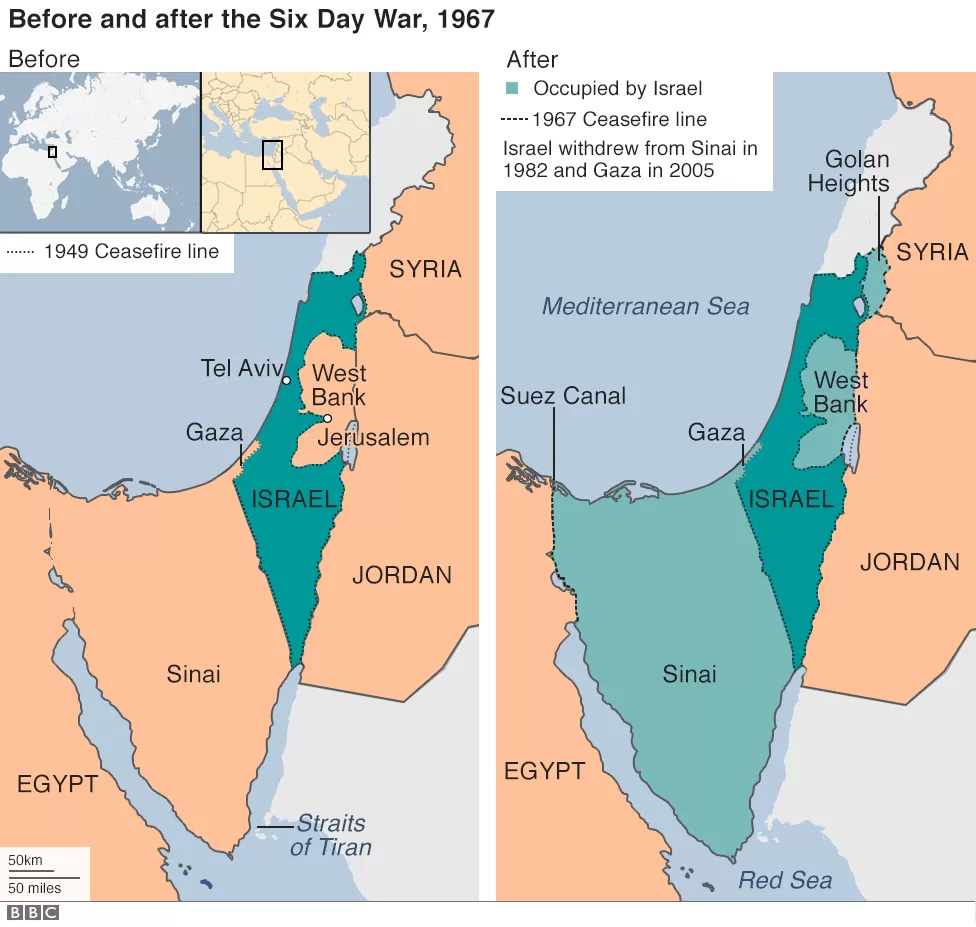After the Six Day War in 1967, the Middle East was left reeling from the loss of the West Bank, the Gaza Strip, the Egyptian Sinai Peninsula and the Golan Heights to Israel. In hindsight, the loss of large swathes of Arab territory probably affected Arab views towards 1971 and the liberation of Bangladesh.
In early 1973, the Egyptian foreign minister Dr. Hassan Al Zayyat visited Bangladesh. Egypt had still not recognized Bangladesh. Zayyat conveyed that recognition was being withheld due to lobbying by Pakistan. The Pakistani president Zulfikar Ali Bhutto travelled to Muslim-majority countries in 1972 to lobby against recognition. The withholding of recognition due to Pakistani lobbying was a great embarrassment for Egypt, Zayyat said. The Turkish foreign minister also visited Dhaka and conveyed the same message. An Algerian special envoy came to Dhaka in May 1973 and complained about Pakistani propaganda against Bangladesh. In June, the Bangladeshi historian Dr. A. R. Mallick was sent as a special envoy to Algeria. In July, the three Maghreb countries of Morocco, Tunisia and Algeria established diplomatic relations with Bangladesh. Normalization with the Arab world was in full swing. The Bangladesh Embassy in Cairo, the seat of the Arab League, was being set up.
The events of October 1973 were a watershed moment. Bangladesh was one of the first countries to express solidarity with Arab nations and this was broadcasted immediately across the Arab world. News of the Egyptian crossing of the Suez Canal, which launched the October War, reached the Prime Minister late at night. Bangabandhu Sheikh Mujibur Rahman did not wait till morning and summoned the foreign secretary for an urgent meeting. Bangabandhu’s message of solidarity was one of the first to reach Cairo. His message was broadcasted throughout the Arab world.
Reports from Syria indicated an urgent need for medical assistance. On the Egyptian front, tea was in short supply for the soldiers who were retaking Sinai. Bangladesh deployed its only Boeing plane to supply 50 tons of tea to Egypt and to ferry an army medical unit to the region. Bangabandhu’s government ordered that the Bangladesh Army’s medical corps be dispatched to the frontline. The Boeing plane took the unit to Beirut. The army medical unit operated a field hospital and was widely praised in the region. The unit wore the army uniform during medical operations, which demonstrated the formal support of Bangladesh, and served with distinction.
This marked the first overseas dispatch of Bangladeshi military personnel. It set a precedent for future overseas deployments, including UN peacekeeping operations.
During the October War, Egypt succeeded in retaking a large part of the Sinai, including the eastern bank of the Suez Canal. The Egyptian success paved the way for the return of Sinai to Egyptian sovereignty in 1979.
Bangabandhu Sheikh Mujibur Rahman with Egyptian president Anwar Sadat in Cairo.
Footnotes
Bangladesh: Quest for Freedom and Justice by Dr. Kamal Hossain
A champion of peace, freedom and humanity by Dr. Rounaq Jahan (Dhaka Tribune, 20 April 2021)
Bangladesh’s Palestine policy by Umran Chowdhury (Dhaka Tribune, 14 July 2023)
Bangladesh and the first Gulf War by Umran Chowdhury (Dhaka Tribune, 24 October 2020)




